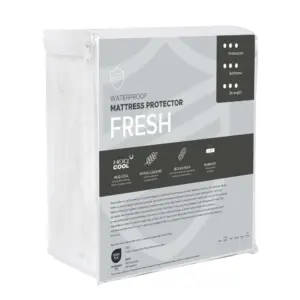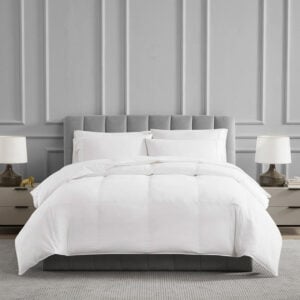Latex or Memory Foam? Deciding the Best Mattress for Your Needs
When it comes to choosing the right mattress, the decision often hinges on more than just budget. Your individual health needs, the dimension of the mattress, and its firmness play crucial roles in determining what will provide you the best sleep experience. In this article, we will explore the notable differences between latex and memory foam mattresses, allowing you to make an informed decision that aligns with your specific requirements.
Quick Comparison: Latex vs. Memory Foam
Pros of Latex:
– Excellent cooling properties
– High durability
– Environmentally friendly
Cons of Latex:
– Higher price point
– Heavier weight
Pros of Memory Foam:
– Superior motion isolation for undisturbed sleep
– Generally more affordable
– Great pressure relief for aching joints
Cons of Memory Foam:
– Tends to retain heat, which may disturb hot sleepers
– Shorter lifespan compared to latex
My name is Ben Trapskin, the founder of Yawnder. After spending two years navigating the world of mattresses to enhance my sleep, I’m here to help you sift through the complexities of mattress shopping. Let’s delve deeper into the world of latex vs. memory foam.
Understanding Memory Foam
Memory foam, initially developed by NASA in the 1960s, is a viscoelastic polyurethane foam designed to protect pilots during crashes. This innovative material has since become a popular choice for mattresses due to its unique properties.
Types of Memory Foam
Memory foam is celebrated for its ability to contour to your body, providing excellent support. This material is also hypoallergenic, making it suitable for allergy sufferers. Here’s a quick overview of the various types of memory foam:
Traditional Memory Foam: This is the original type, offering a deep, enveloping sensation. While it provides excellent support, it can retain heat, making it less desirable for those who sleep hot.
Gel Memory Foam: Infused with gel microbeads, this upgraded version improves temperature regulation, making it a preferable choice for warmer climates.
Open-Cell Memory Foam: Featuring a porous structure, open-cell memory foam enhances airflow and disperses heat. It still delivers the contouring benefits of traditional memory foam but with improved breathability.
Key Benefits and Drawbacks of Memory Foam
Benefits:
– Exceptional contouring and support for almost every body type
– Naturally hypoallergenic properties
– Variety of types to cater to different sleeping preferences
Drawbacks:
– Heat retention in traditional options
– Potential for off-gassing when new
Memory foam remains a favorite for its plush, supportive feel, particularly for those seeking relief from pressure points. If heat retention troubles you, consider opting for gel or open-cell variations.
Exploring Latex Foam
Latex foam stands out for its responsiveness, durability, and natural origin. Unlike synthetic memory foam, latex can be made from natural substances or synthetic materials.
Types of Latex Foam
Natural Latex: Harvested from the sap of rubber trees, natural latex is baked or frozen into foam, providing a highly durable and eco-friendly mattress option. It’s also resistant to dust mites and mold, making it excellent for allergy sufferers.
Synthetic Latex: Created from petrochemicals, synthetic latex mimics natural latex but is generally less durable and more affordable.
Talalay Process vs. Dunlop Process:
– Talalay Latex: This process creates a lighter, consistent foam, known for its softer feel and better airflow.
– Dunlop Latex: Simpler and more energy-efficient to produce, Dunlop latex results in dense, durable foam that offers firmer support.
Comparing Latex and Memory Foam: The Key Differences
Support: Memory foam adapts to your body shape to promote spinal alignment, making it ideal for those with back pain. Contrarily, latex quickly bounces back to its original form, preventing a “sinking” sensation while still providing ample support.
Breathability: Traditional memory foam often retains heat, although newer models with cooling technologies are improving. Latex excels in temperature regulation due to its naturally airy structure.
Motion Isolation: Memory foam significantly reduces motion transfer, making it suitable for couples. In contrast, latex can transmit more movement because of its bouncier nature.
Pros and Cons of Each Type
Memory Foam Pros:
– Superior pressure relief
– Excellent motion isolation
– Cost-effective options available
Memory Foam Cons:
– Heat retention can be problematic
– Off-gassing when new
– Shorter lifespan compared to latex
Latex Pros:
– High breathability and cooling
– Longevity, often lasting more than 15 years
– Eco-friendly materials
Latex Cons:
– Higher price point
– Heavier and more cumbersome
– Less contouring than memory foam
The Best Choices in Mattress Options
Choosing the right mattress from the wide array of latex and memory foam options can feel overwhelming. Here are some standout picks in both categories to consider:
Top Latex Mattresses
1. Saatva Latex Hybrid: Combines natural latex with individually wrapped coils for excellent support and breathability.
2. Zenhaven: A double-sided mattress made entirely of natural Talalay latex, offering two firmness options in one.
3. Birch: An eco-friendly choice that blends natural latex with organic materials, ensuring durability and support.
Best Memory Foam Mattresses
1. GhostBed Luxe: Renowned for cooling properties, featuring gel memory foam for great pressure relief.
2. Amerisleep AS3: Versatile mattress suitable for all sleeping positions, thanks to its proprietary Bio-Pur® memory foam.
3. Novosbed: Offers customizable firmness options and excellent motion isolation.
Frequently Asked Questions
Which is better, memory foam or latex?: It largely depends on personal preference. Memory foam is preferred for contouring and motion absorption, while latex is favored for its durability and eco-friendly features.
Do latex mattresses last longer than memory foam?: Yes, latex typically lasts up to 20 years, whereas memory foam averages around 10 years.
Is latex better for back support than memory foam?: Generally, latex mattresses provide more robust support and maintain spinal alignment, but it depends on individual needs and sleeping styles.
Conclusion: Making Your Choice
Choosing between latex and memory foam can be daunting, but understanding their unique characteristics is crucial. At Yawnder, we’re committed to helping you find the perfect mattress tailored to your needs. With our extensive evaluations and expert insights, rest assured you’re choosing wisely.
Explore our extensive collection today and embark on your journey to improved sleep quality!


















